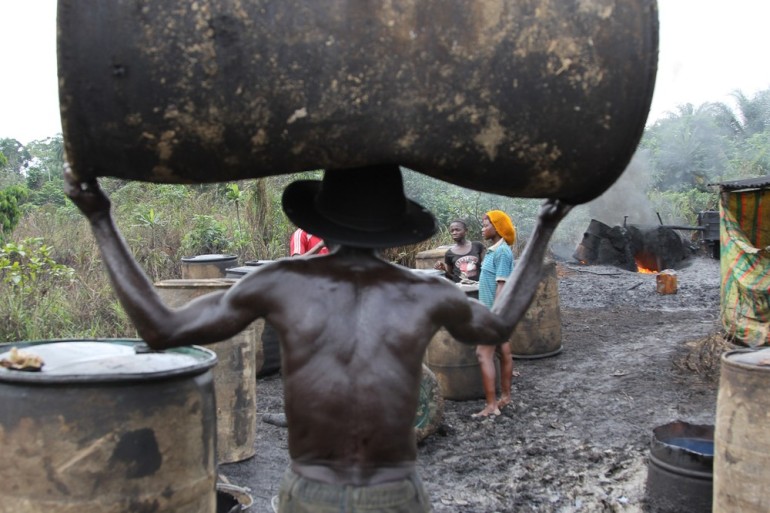By Shakrullah Owolabi

Nigeria may lose about $6 billion to oil theft in 2022. The gloomy news was disclosed by Socio-political analyst and commentator, Dr. Ugoji Egbujo, in an article titled, The Petrol Subsidy Quandary: The Devil or the Deep Blue Sea?
Egbujo hinted that our parlous state is complicated by our leaky purse and lousy revenue gathering.
In 2021, He noted that the country lost about three billion dollars to crude oil thieves in 2021 which translates to N1.4 trillion, adding that, this year, that figure, on the back of rising crude prices, could be six billion dollars (about N3 trillion).
‘‘In other words, the very humongous sum we must borrow to keep the frayed tempers of the poor from flaming is the money we will inevitably lose to crude oil thieves in our midst. Inevitable, because that criminality has almost been normalized,’’.
He said between 2009 and 2019, Nigeria Extractive Industry Transparency Initiative(NEITI) reported that the country lost $41.9 billion to crude oil thieves, insisting that if we had been sufficiently alarmed, we would have laid down our lives to stop the theft.
‘‘But the thieves don’t feel guilty. The reason crude oil theft has become a fixed feature of our national economy is that millions in the Niger Delta do not subscribe to the idea that the oil wells belong to Nigeria rather than the locality.
Illegal crude oil bunkering is so rampant one is tempted to believe that it is condoned by governments at different levels. Perhaps a way of getting some and letting trouble makers have some sharing of national sovereignty.
That isn’t to say that the Navy and other security agencies don’t go after oil thieves. But this organised crime happens in the open. And the sheer size of stolen crude is so earth-shuddering that it shouldn’t happen every year if we feel truly perturbed.
However, the crude oil theft problem is not helped by stories from Zamfara and other places, where folks, in league with scavenging foreign businessmen, mine diamonds and gold and keep the proceeds,’’.
On fuel subsidy, he said the country enacted the Petroleum Industry Act(PIA) to deregulate the petroleum sector and enhance private participation but has now suspended the portion of that law that would have extinguished petrol subsidy by June 2022.
‘‘We are scared. But if we keep the subsidy, the states will have nothing to collect monthly from Abuja. The CBN might organise a quiet printing of more money to give them some watery soup. In the end, the naira will be beaten to stupor and might lie south of one thousand to a dollar. We must be careful. Head or tail, we might be in boiling soup.
Last year, we borrowed about N1.4 trillion to service our sense of entitlement to cheap fuel. This year that figure might double. The reason is simple: crude oil prices have risen. Our neighbours are importing at market rate and selling petrol above N400 per litre. If we insist on selling at 160 per litre, we would inevitably be inviting them to feed on our subsidy. So we would end up providing cheap fuel for the entire region,’’ he warned.




